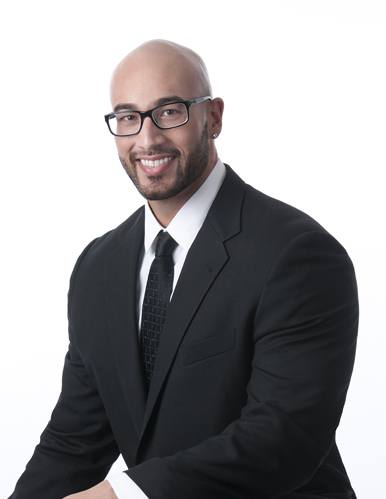
“Let us never know what old age is. Let us know the happiness time brings, not count the years”
Ausonius
At the simplest level, aging is the process of becoming older. For most people, age itself is an uncomplicated matter: it’s the number we see on our birthday cakes – the difference between the current year and the year of our birth. Yet, from a scientific standpoint, age is far more than just a number. It’s also defined as the progressive deterioration of a living thing, in which the risk of mortality increases exponentially. [1]
This definition may seem a bit morbid, but now, experts are exploring new ways to look at aging. We know, for example, that one 65-year-old may not be as healthy as the next, just as 40-, 50-, and even 25-year-olds can have varying degrees of health. To get a better understanding of how health differences can be so vast among individuals of the same chronological age, experts are looking at biological age instead.
In order to understand how to help increase one’s biological age, it is recommended to first use a biological age calculator to measure one old one seems (aka their biological age) and if the biological age calculator reveals a number that is more than one’s chronological age, to figure out what lifestyle changes are needed to lower one’s biological age and increase a person’s life expectancy.
In particular, Yale Medical School researcher, Morgan Levine, Ph.D., recently published findings on the matter, in which they developed an equation to combine an individual’s blood measures with advanced algorithms. Called DNAm PhenoAge, this process yields a biological age reading which they call “a new epigenetic biomarker of aging.” The test reveals predictions for age-related outcomes, such as all-cause mortality, physical functioning, cancers, and Alzheimer’s disease, determining age at a cellular level. [2]
Because not everyone of the same age faces the same risk for these conditions, evaluating risk on a more individualized basis can provide a telling account of where you stand in terms of both current and future health.
As pioneers in age management, Cenegenics has remained at the forefront of closely studying biological aging factors and helping our patients reduce this critical measure for 23 years. In fact, we pioneered the medical specialty of Age Management, and one of our physicians even wrote the textbook used to teach other doctors the key theories behind optimal health through aging. We, therefore, support Yale Medical School’s research in their findings and believe that biological aging is one of the most important factors for individuals to understand and address. Here, we discuss the principles behind biological age and why they’re essential for telling the true story of our health, no matter what our birth certificates say.
Chronological age is the number of years for which you’ve been alive. It’s a straightforward calculation that has been the gold standard for estimating the risk of certain ailments and conditions in individuals. For example, the risk for chronic and neurodegenerative diseases, cardiovascular disease, and most types of cancer increases with chronological age. Increasing chronological age also corresponds with an increased risk of geriatric syndromes, such as immobility, frailty, and diminishing physical resilience, as well as age-related diseases like dementia, Alzheimer’s, and osteoarthritis.[9]
Yet, while we know that disease risk increases with chronological age and that physical and mental function declines with it, the rate at which these changes take place can differ significantly from one person to the next. This is because numerous factors make up the aging process, and can be impacted by influences such as lifestyle, the environment, and genetics. As a result, experts have developed what is known as biological age.
The difference between chronological age and biological age is that chronological age is how old someone is in years. Biological age is far more revealing of a person’s status of health at a given age. Biological age is determined using a combination of specific physiological measures outside of age in years.
For instance, if a person is 30 years old chronologically but their biomarkers bear a closer resemblance to those of the average 40-year-old, it would indicate that the individual is aging at a quicker rate than the norm. [3] Biological age, therefore, looks at the pace at which we’re aging and ultimately determines our current levels of health while helping to predict our lifespan.
While most experts agree that measuring biological age has its benefits, there have been challenges in terms of reaching an agreement on which factors to look at when assessing it. For example:
Clearly, finding a single measurement for biological age is much more complex than simply counting years, as we do for chronological age. Researchers have posited that, regardless of which factors are used to measure biological age, to be considered viable, they should:
Most recently, Yale Medical School’s publication has emerged as perhaps the most comprehensive and well-researched approach to biological aging. The research drew on data from 10,000 participants in a study that ran from 1988 to 1994 in which they sought to identify the key metrics that could forecast life expectancy most accurately. Based on those findings, they created a subsequent study of 11,000 people, which ran from 1999 to 2010. After looking at 42 different clinical measures, they ultimately pinpointed nine biomarkers with the greatest influence on lifespan, including inflammatory, immune, blood sugar, kidney, and liver measures. [8]
Obviously, biological age is an area of interest that draws many researchers across various disciplines. But the question remains: Why is biological age such a hot topic?
Understanding the breakdown of biological ages within a certain population can give us some information about the group’s future. For instance, an aging population will most likely require increased health care support. Yet, chronological age only tells us one piece of the story. With a look into biological age, we can better understand the pace of aging to determine whether we’re becoming healthier as a population, or if our choices are actually aging us at a faster rate.
For instance, while fewer people in the U.S. are smoking now than in the 1980s, obesity rates have more than doubled within the same time frame. [10] No matter how you choose to measure it, factors like obesity and smoking are sure to have an effect on biological age, as both have body-wide implications.
In fact, one of the main reasons studying biological age is so important is because there’s a good chance many factors that impact it are within our control to change. While we can’t change our genetic factors, for instance, lead Yale researcher Morgan Levine explains that the newest equation for biological age can give patients a concrete idea of what they can do to reduce their risk for disease and “show you how you can reduce your risk because you can plug all the numbers in to see how the risk drops if they bring their glucose down, for example.” [11]
Similarly, telomeres, the end of chromosomes that aid in the regulation of cellular aging, can be affected by habits and factors such as:
Moreover, traditional medicine often comes up short in terms of accurately predicting serious disease risk in populations with no prior signs of disease. This isn’t the fault of medical practitioners; after all, treating issues after they emerge has been a standard in medical care for decades. Yet, blood pressure and similar readings aren’t always enough to determine who could be at risk for heart disease in groups who are presumably healthy. Detecting biological age is therefore more than just a way to determine who’s aging quickly and who isn’t; it’s also a powerful means of determining who is at risk for diseases that may have otherwise gone undetected. Yale’s study is the first to determine that biomarkers of biological aging are “highly predictive of cardiovascular and coronary heart disease,” for instance. With these findings, interventions such as lifestyle changes can be introduced long before the disease actually develops. [13]
With the help of Cenegenics, it’s entirely possible to start reversing your biological clock now. While the aging process is complex and still being studied, we know that minimizing the risk of disease, frailty, and disability can be achieved through healthy lifestyle practices, including:
It isn’t a coincidence that these very factors are the pillars of the Cenegenics program. Not only do our experts take a research-based approach to help our patients reach and maintain a healthy weight, improve their sleep quality, and optimize their health in many other important ways, but we also look at each individual’s biomarkers for a better understanding of their biological age. We take a highly scientific approach to work toward getting a body perfectly tuned at the cellular level so that it functions ideally, thereby lowering your biological age and rebalancing your body to where it was in your 20s or 30s. We tailor recommendations to your precise needs, allowing you to feel your best both now and at every age.
As you can see, there’s more to think about when it comes to age than your chronological age alone. Understanding where you fall on the trajectory of aging allows you to make the choices that can preserve optimal health no matter what your chronological age may be, and in some cases, may even allow you to slow or reverse the aging process. In doing so, you can minimize your risk for disease, stave off geriatric conditions such as frailty and diminished physical resilience, and enjoy a richer quality of life.
Yet, to achieve these goals, you need the help of experts who not only understand but actually specialize in age management. Read through Cenegenics reviews and you’ll discover stories about how we’ve helped countless patients feel years younger. In fact, our patients feel dramatically better within 30 to 60 days on the program. That’s because we’re giving them the tools and guidance they need to improve their health at a cellular level, thereby prompting better wellness now and into the future. We’re even the physicians most trusted by other medical providers; we’re considered the “doctor’s doctor,” as 25% of our patient base is made up of doctors and their family members. So, whether you have questions about Cenegenics’ cost, are wondering what our exclusive Elite Health Evaluations include, or you’re simply ready to find out how our team can help you look, feel and be your best, don’t hesitate to contact your nearest Cenegenics location for more information.
Our world-class physicians create a personalized plan to help you feel 10+ years younger. You’ll be more energetic, lose weight, sleep better, have more libido, and think more clearly. Click below to schedule a free consultation with one of our physicians. It’s quick + easy.
Key Resources
This guide was produced with contributions from the following key resources:
The Cenegenics Education and Research Foundation
The Textbook of Age Management Medicine Volume 1: Mastering Healthy Aging Nutrition, Exercise and Hormone Replacement Therapy
The Cenegenics Education and Research Foundation
The Textbook of Age Management Medicine Volume 2: Mastering Healthy Aging Nutrition, Exercise and Hormone Replacement Therapy
Textbook Authors:
Jeffrey Park Leake, M.D., CPT
Dr. Jeffrey Park Leake is a Partner and Director of Education at Cenegenics Elite Health specializing in age management and wellness. Having trained hundreds of physicians worldwide, Dr. Leake is also the Director of Education for the Clinical Strategies for Healthy Aging course at AMM Educational Foundation.
Todd David Greenberg, M.D., CSCS
Dr. Todd Greenberg is a practicing physician with a broad range of expertise, including wellness, exercise, sports injuries, and MRI of sports injuries. He is a Radiology Clinical Associate Professor at the University of Washington.
Additional Resources
Cenegenics: Science-Based Medicine
Cenegenics Elite Health Program: Why You Should Consider Age Management Your Next Investment
The Main Causes of High Cholesterol | Road Map to a Heart Attack
Visceral Fat: The Dangers Run Deeper Than You Think
Neurocognitive Testing: What Is It & Is It Right for You?
Do You Recognize the 6 Warning Signs of Adrenal Fatigue?
What is Andropause? And How Is It Affecting You?
Getting Back on Track with Diet & Exercise: Staying Motivated
References
[1] Michael D. West, et al. “Toward a unified theory of aging and regeneration.” Regenerative Medicine. 28 Aug. 2019.
[2] US National Library of Medicine National Institutes of Health, “An epigenetic biomarker of aging of lifespan and helathspan. Derived from: https://www.ncbi.nlm.nih.gov/pmc/articles/PMC5940111/
[3] Levine, Morgan E. and Crimmins, Eileen M. “Is 60 the New 50? Examining Changes in Biological Age Over the Past Two Decades.” Demography. 1 April 2019.
[4] Pyrkov, Timothy V. and Fedichev, Peter O. “Biological age is a universal marker of aging, stress, and frailty.” Biomarkers of aging. March 2019.
[5] Jazwinski, S. Michal and Kim, Sangkyu. “Examination of the Dimensions of Biological Age.” Frontiers in Genetics. 26 March 2019
[6] Tchkonia, Tamara, PhD, and Kirkland, James L., MD, PhD; see above.
[7] Levine, Morgan E. and Crimmins, Eileen M; see above.
[8] See above. Derived from: https://www.ncbi.nlm.nih.gov/pmc/articles/PMC5940111/
[9] Tchkonia, Tamara, PhD, and Kirkland, James L., MD, PhD. “Aging, Cell Senescence, and Chronic Disease.” JAMA. 2 Oct. 2018.
[10] Levine, Morgan E. and Crimmins, Eileen M; see above.
[11] Sample, Ian. “Is the end nigh? New blood tests can reveal your life expectancy.” The Guardian. 9 Jul 2018.
[12] Sifferlin, Alexandra. “3 Simple Lifestyle Habits That May Slow Aging.” Time. 29 July 2014.
[13] See above. Derived from: https://www.ncbi.nlm.nih.gov/pmc/articles/PMC5940111/
[14] Michael D. West, et al; see above.
[15] Fan, Shelly. “The First Evidence That Drugs Could Turn Back the Clock on Our Biological Age.” SingularityHub. 17 Sept. 2019.
 Contributor: Rudy Inaba Vice President of Health Performance
Contributor: Rudy Inaba Vice President of Health Performance
Rudy Inaba is Cenegenics’ Vice President of Health Performance. He is a recognized fitness and sports nutrition consultant with nearly 15 years of experience in clinical exercise physiology and lifestyle management. After pursuing his Master of Science in Clinical Exercise Physiology at the University of Nevada Las Vegas, Rudy joined Cenegenics where he leads 19 clinical locations nationwide in their advancements in kinesiology, nutritional biochemistry, and their analyses of industry research & market trending.


